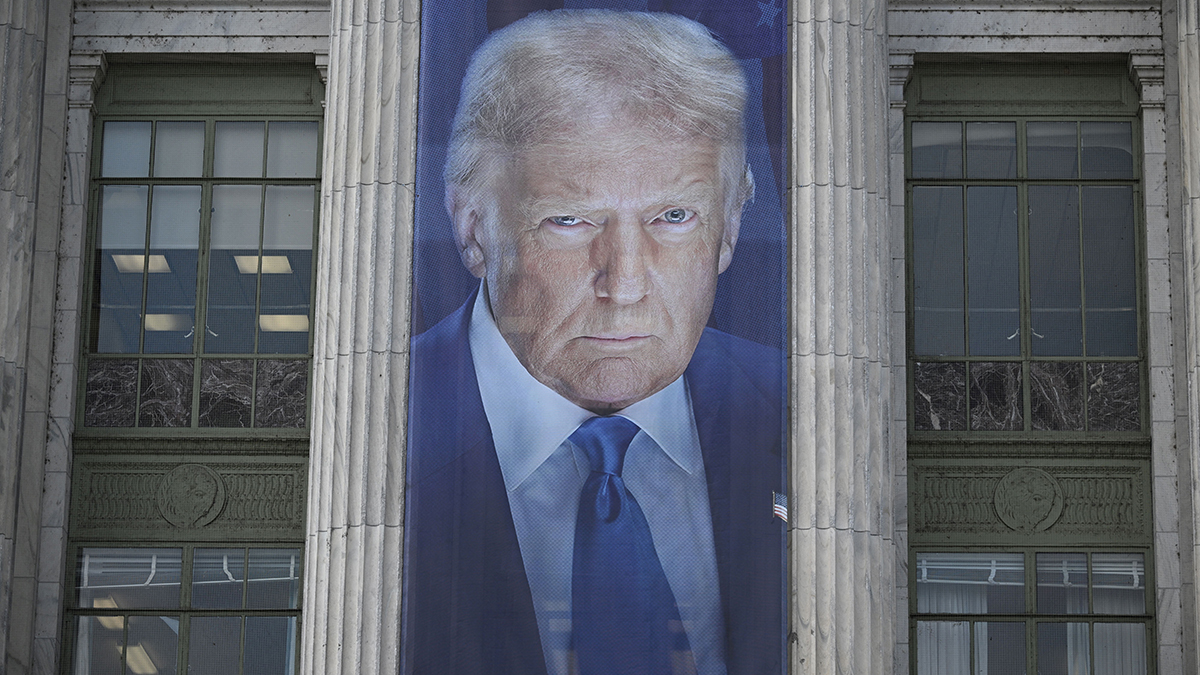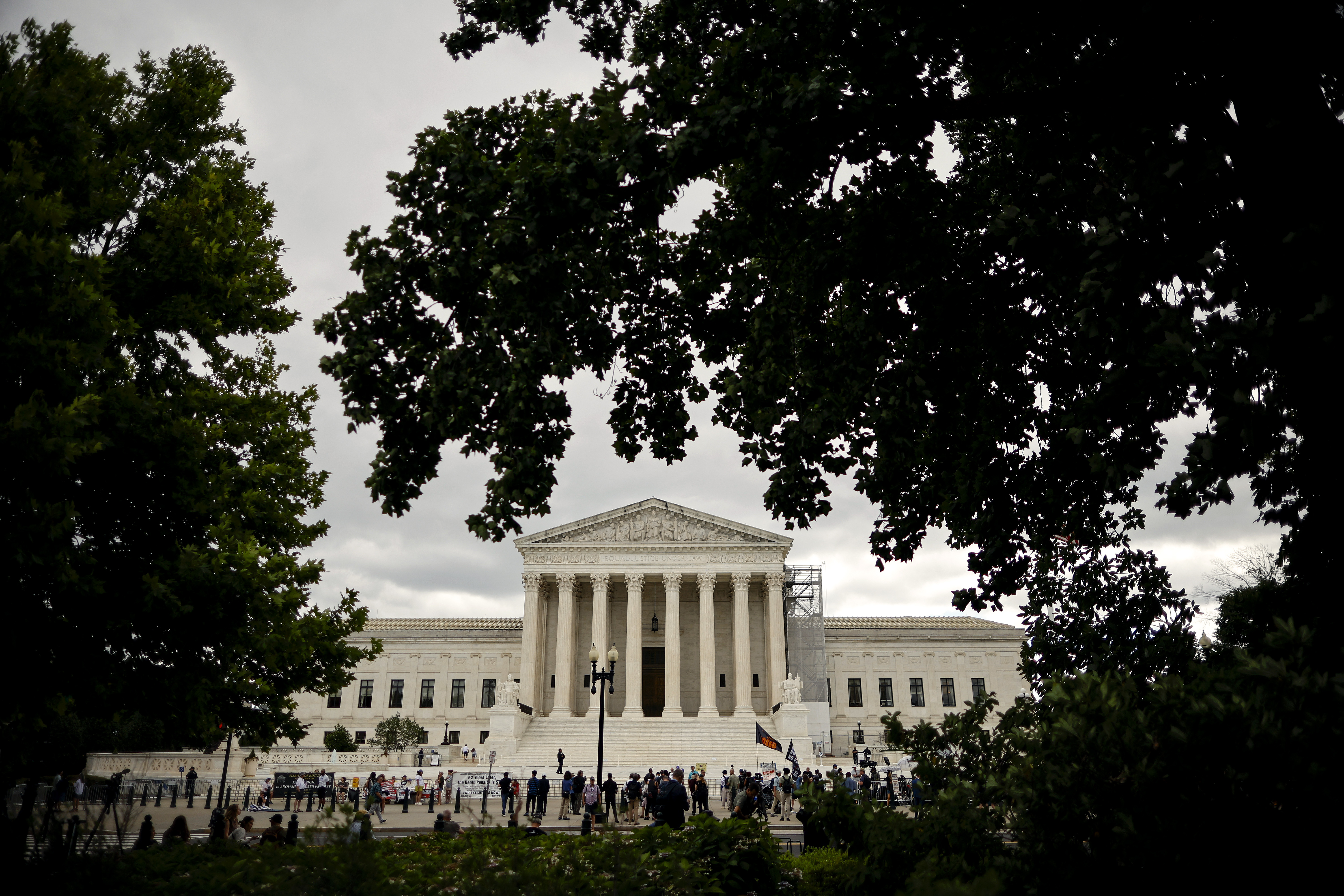Trump's Setbacks: Deportation & Budget Plans Face Roadblocks!
Trump's Immigration and Budget Roadblocks: A Setback Story
Introduction: When Plans Hit a Wall
Let's face it, in the world of politics, even the best-laid plans can sometimes resemble a toddler's tower of blocks – impressive at first glance, but teetering on the edge of collapse. Recent events have highlighted some significant setbacks for former President Trump's key agendas, particularly concerning immigration enforcement and budget priorities. From Supreme Court decisions to surprising congressional votes, the landscape is proving to be more challenging than anticipated. Think of it like trying to push a boulder uphill – momentum is key, and even a small slip can send you tumbling back down.
Supreme Court Slams the Brakes on Venezuelan Deportations
The 18th-Century Wartime Law Appeal
In a move that's caused ripples across the legal and political spectrum, the Supreme Court has rejected the Trump administration's appeal to expedite the deportation of Venezuelans using an obscure 18th-century wartime law. Yes, you read that right – an 18th-century law! You might be thinking, "What law is that and why would they use it?". This specific law gives the government broad powers during times of war, but its application to the current situation regarding Venezuelan migrants raised some serious eyebrows.
Why This Matters for Immigration Policy
This decision represents a considerable setback for efforts to aggressively enforce immigration laws. It raises questions about the scope and limits of executive power when it comes to immigration matters. Are we really going to rely on centuries-old laws to tackle modern immigration challenges? It underscores the complexities of immigration policy and the need for comprehensive, forward-thinking solutions rather than relying on antiquated legal mechanisms.
House Republicans' Budget Dreams Dashed (For Now)
The Tax Breaks and Spending Cuts Package That Fell Flat
The political world was left reeling when House Republicans failed to push their ambitious package of tax breaks and spending cuts through the Budget Committee. Imagine the scene: carefully crafted proposals, hours of debate, and then…a stunning defeat. A handful of conservatives joined forces with all Democrats in a vote that sent shockwaves through the Republican party.
Conservative Revolt: A Crack in the Republican Armor?
What led to this internal rebellion? It seems like some conservatives felt the proposed cuts didn't go far enough, while others might have had concerns about the impact on their constituents. Whatever the reasons, this episode highlights the deep divisions within the Republican party itself. It is a clear sign that the path forward for the party is not as unified as it may seem.
The Implications for Trump's Agenda
This budget defeat poses a significant challenge to Trump's broader agenda. Without the necessary funding, many of his proposed initiatives could be severely hampered. Can he still deliver on his promises to the American people? This setback forces a reevaluation of strategies and a potential need for compromise to move forward.
Trump's Middle East Trip: AI and Diplomacy
A Massive AI Data Center Deal in the UAE
Amidst the domestic political turmoil, Trump concluded his Middle East trip after securing a landmark deal to build a massive AI data center in the United Arab Emirates. This is a significant win, showcasing his ability to broker major international partnerships. This deal highlights the growing importance of AI in the global economy and the potential for collaboration between the US and the Middle East.
Balancing International Wins with Domestic Challenges
The success of the UAE deal provides a counterbalance to the domestic setbacks. It raises the question: can Trump leverage these international accomplishments to regain momentum on the home front? It's a delicate balancing act, requiring skillful navigation of both domestic and foreign policy challenges.
Secret Service Investigates Comey's Social Media Post
Comey's Deleted Post Sparks Controversy
The Secret Service has launched an investigation into a now-deleted social media post by former FBI Director James Comey, after U.S. officials interpreted it as a call for Trump's assassination. The line between political criticism and incitement to violence is often thin, and this case highlights the dangers of online rhetoric.
The Fallout From the Investigation
This investigation adds another layer of complexity to the already fraught relationship between Trump and Comey. It also raises questions about the responsibility of public figures to carefully consider the potential impact of their online activity. Free speech comes with responsibility, and the potential for misinterpretation and unintended consequences should always be taken into account.
Deportation Setbacks: A Broader Perspective
The Challenges of Mass Deportation
The Supreme Court's decision regarding Venezuelan deportations underscores the inherent challenges of mass deportation efforts. From legal hurdles to logistical complexities, attempting to deport large numbers of people is a daunting task. Even with the best intentions, the practical realities can often fall short of the desired outcome.
The Human Cost of Immigration Policies
Beyond the legal and logistical challenges, immigration policies have a profound human impact. Separating families and uprooting lives can have devastating consequences. It's crucial to consider the human cost of immigration policies and strive for solutions that are both effective and compassionate.
Budgetary Battles: A Recurring Theme
The Politics of Fiscal Responsibility
The failed Republican budget package is just the latest example of the ongoing budgetary battles in Washington. Democrats and Republicans often have fundamentally different views on how to allocate resources and prioritize spending. Finding common ground and reaching consensus can be a difficult, and often frustrating, process.
The Impact on Social Programs
Budget cuts often target social programs that provide vital services to vulnerable populations. These programs include everything from healthcare and education to food assistance and housing support. The potential consequences of these cuts must be carefully considered, and efforts should be made to protect the most vulnerable members of society.
The Road Ahead for Trump's Agenda
Navigating Political Obstacles
Trump faces a number of significant political obstacles in the coming months and years. From congressional gridlock to legal challenges, he will need to navigate a complex and often hostile political environment. Success will require skillful negotiation, strategic alliances, and a willingness to compromise.
Adapting to Changing Circumstances
The political landscape is constantly evolving. What worked yesterday may not work today. Trump will need to be adaptable and responsive to changing circumstances if he hopes to achieve his goals. Rigidity and inflexibility can be a recipe for failure in the ever-changing world of politics.
The Future of Immigration Policy
Seeking Bipartisan Solutions
Comprehensive immigration reform is long overdue. The current system is broken and needs to be fixed. Finding bipartisan solutions is essential to creating a fair, effective, and sustainable immigration policy. Compromise is key to achieving meaningful reform that addresses the needs of all stakeholders.
Addressing the Root Causes of Migration
Ultimately, addressing the root causes of migration is essential to reducing the flow of undocumented immigrants. This includes addressing poverty, violence, and instability in countries of origin. Investing in economic development and promoting good governance in these countries can help create a more stable and prosperous world.
Trump's Enduring Influence
The Power of Personality and Communication
Even amidst setbacks, Trump retains a significant level of influence within the Republican party and among his supporters. His personality and communication style resonate with many voters, and he remains a powerful force in American politics. His ability to connect with people on an emotional level is a key factor in his enduring popularity.
The Legacy of "Trumpism"
Regardless of what happens in the future, Trump's impact on American politics is undeniable. The rise of "Trumpism" has reshaped the Republican party and challenged traditional political norms. His legacy will continue to be debated and analyzed for years to come.
Conclusion: Setbacks and the Path Forward
The recent setbacks for Trump's deportation and budget plans highlight the challenges of implementing a controversial political agenda. From Supreme Court decisions to congressional defeats, the road ahead is likely to be bumpy. While these are certainly blows to his intended policies, they also represent the checks and balances of the American political system at work. Whether these setbacks are temporary or long-lasting remains to be seen, but they serve as a reminder that even the most powerful leaders face limitations.
Frequently Asked Questions
Q: Why did the Supreme Court reject the deportation appeal?
A: The Supreme Court rejected the appeal because of concerns about using an 18th-century wartime law for modern immigration enforcement. The justices likely felt its application was overly broad and potentially unconstitutional in this context.
Q: What were the reasons for the House Republican budget failure?
A: The House Republican budget failed due to a combination of factors, including conservative opposition to the size and scope of the proposed cuts, as well as unified Democratic opposition to the entire package. Internal divisions within the Republican party played a significant role.
Q: What is the significance of the AI data center deal in the UAE?
A: The AI data center deal is significant because it represents a major international economic partnership and highlights the growing importance of artificial intelligence in the global economy. It also demonstrates Trump's ability to broker deals on the international stage.
Q: What are the potential consequences of Comey's social media investigation?
A: The investigation into Comey's social media post could lead to various outcomes, ranging from a formal warning to more serious legal consequences, depending on the findings of the Secret Service investigation and the interpretation of the post.
Q: What can be done to achieve comprehensive immigration reform?
A: Achieving comprehensive immigration reform requires a bipartisan approach, addressing the root causes of migration, and finding common ground on issues such as border security, pathways to citizenship, and enforcement mechanisms. Compromise and collaboration are essential for success.

